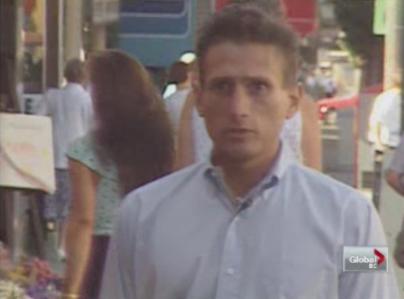It was twenty years ago today that Vancouver and B.C. lost a pioneering AIDS activist.

Doctor Peter Jepson-Young, known to everyone simply as Doctor Peter, passed away November 15, 1992.
At the time when many people diagnosed with AIDS often kept it quiet, he did the opposite, making his private battle with the disease a public issue.
It’s been seven years since Tony Amodeo learned he was HIV-positive.
Even though he lived a high risk lifestyle, the diagnosis came as shock.
“I was one of those things that you say, it will never happen to me,” says Amodeo. “And then when it does happen, it happens so quickly that you really don’t have time to go — holy cow, it just did. Right away I realized I had a life-threatening disease and that I’ve got to do anything in my power to do what is necessary.”
One of those things was to visit the Dr. Peter Centre, located across the street from St. Paul’s hospital in Vancouver.

Get daily National news
Tony had heard they could help him adjust to his new reality.
“Here at the Dr. Peter Centre, the individuals who come in our door, they are not only struggling with HIV, they have serious mental illness, addictions, they are homeless, they live in poverty,” says Dr. Peter AIDS Foundation executive director Maxine Davis. “It is not as easy as taking a pill.”
The centre’s name sake – Dr. Peter Jepson-Young – died of AIDS 20 years ago today.
Before researchers had discovered the life saving medicines that help many of those with HIV to live long, often productive lives.
He played a major role in reducing the stigma and fear that surrounded the disease by going public.
“He set up a foundation two weeks before he died, with a mission to provide what he called comfort care for people living with HIV-AIDS.”
Four hundred people use the Dr. Peter Centre every year.
It is a place where they can find companionship and emotional support, among other things.
Art therapy is just one of the many programs offered.
A service that centre participant Jean Marc Chamberlain uses every day since he became too sick to work.
“It replaces that passion I lost when I worked and it is beautiful to be here and to do this,” says Chamberlain.
And what better way to bring a community together than over a home cooked meal.
Breakfast and lunch are prepared and offered every day, free of charge
“For them to be able to buy it and cook it, and do it on their own, I mean, a lot of people do not have access to a stove,” says food service manager Paul Lundh.
By honoring Dr. Peter’s legacy, they hope very much to put themselves out of business in the not too distant future.
“I think we would all be thrilled, including Peter, when the day comes that the Dr. Peter Centre is no longer necessary,” says Davis.
Below is the interview with Dr. Peter’s mom Shirley Young




Comments